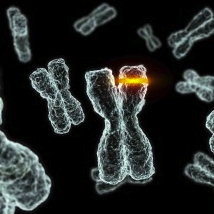The process of methylation, even just the word, can bore people half to death, but the truth of the matter is that this little tidbit of seemingly useless information is at the heart of many peoples chronic health concerns. Before tuning out, I would encourage you to read a little further as your future health might be at stake.
Biochemistry and genetics are complicated to understand but once we can restore methylation pathways to optimal function, the resulting improvements in health conditions are incredible. Although genetics are found to affect the backbone of the methylation cycle, it seems that toxins, infections, emotional stress, injury, diet, and lifestyle are at the heart of what causes the genetic factors to take their toll on the person affected.
The folate-methionine bicycle, like an ordinary bicycle, has 2 biochemical wheels that are spinning in every cell in our bodies, however what comes off these spinning wheels is what keeps our detoxification working, our energy production maximized, our neurotransmitter functions stable, and allows our cells to divide properly and function efficiently.
I know that all of this sounds boring, but we must understand that our entire health depends on these factors. When they are not working properly we can become, depressed, anxious, tired and eventually very sick with concerns like cancer and heart disease. Methylation is one of the key individual factors differentiating health from disease and the most important thing to understand is that its cheep and easy to fix.
The following article is written by a colleague of mine, Dr Ben Lynch ND. If you are interested in this process further and how to test it, or treat the conditions that methylation has been associated with please have a look at http://mthfr.net/ or visit https://www.23andme.com/ and order your genetic kit. Once you have your results I would be happy to decipher them with you. This information can save peoples lives and it only costs $99.00.
MTHFR Mutations and the Conditions They Cause
by Dr Lynch on September 7, 2011
MTHFR gene mutations can cause absolutely no symptoms at all. They can also cause severe irreversible health conditions such as Down’s syndrome. Research is still pending on which medical conditions are caused by, or at least partially attributed to, the MTHFR gene mutations. From the partial list I recently went through on Medline, these are the current symptoms, syndromes and medical conditions relating to the MTHFR gene mutations:
I will continue to add to this list as I find new conditions and symptoms caused by the MTHFR gene mutations.
- Autism
- Addictions: smoking, drugs, alcohol
- Down’s syndrome
- Miscarriages
- Pulmonary embolisms
- Depression in Post-Menopausal Women
- Schizophrenia
- Fibromyalgia
- Chronic Fatigue Syndrome
- Chemical Sensitivity
- Parkinson’s
- Irritable Bowel Syndrome
- Pre-eclampsia
- Stroke
- Spina bifida
- Esophageal Squamous cell carcinoma
- Acute Lymphoblastic Leukemia
- Vascular Dementia
- Bipolar disorder
- Colorectal Adenoma
- Idiopathic male infertility
- Blood clots
- Rectal cancer
- Meningioma
- Glioma
- Congenital Heart Defects
- Infant depression via epigenetic processes caused by maternal depression
- Deficits in childhood cognitive development
- Gastric Cancer
- Migraines with aura
- Low HDL
- High homocysteine
- Post-menopausal breast cancer
- Atherosclerosis
- Oral Clefts
- Type 1 Diabetes
- Epilepsy
- Primary Closed Angle Glaucoma
- Alzheimer’s
- Tetralogy of Fallot
- Decreased telomere length
- Potential drug toxicities: methotrexate, anti-epileptics
- Cervical dysplasia
- Increased bone fracture risk in post-menopausal women
- Multiple Sclerosis
- Essential Hypertension
- Differentiated Thyroid Carcinoma
- Prostate Cancer
- Premature Death
- Placental Abruption
- Myocardial Infarction (Heart Attack)
- Methotrexate Toxicity
- Nitrous Oxide Toxicity
- Heart Murmurs
- Tight Anal Sphincters
- Tongue Tie
- Midline Defects (many are listed above)
- Behcet’s Disease
- Ischemic Stroke in Children
- Unexplained Neurologic Disease
- Asthma
- Shortness of Breath
- Bladder Cancer
- Anecephaly
